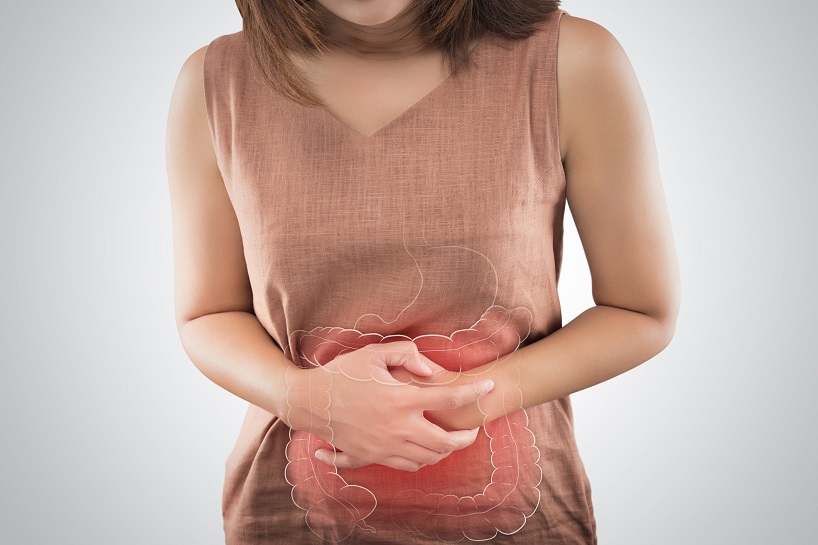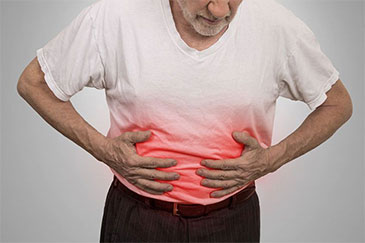
Natural Treatments for Irritable Bowel Syndrome (IBS): A Comprehensive Review


Irritable Bowel Syndrome (IBS) is a common functional gastrointestinal disorder. IBS may affect up to 1 in 5 Canadians, (1) More women suffer from IBS compared to men. IBS can affect people at any age. IBS is not life-threatening and does not lead to serious illness (2)
The symptoms of IBS include abdominal pain, bloating, constipation and/or diarrhea. Conventional treatments may focus on symptom management. More people are seeking natural treatment options including diet recommendations, microbiome testing, botanical therapies and supplements to reduce inflammation in the digestive tract and improve symptoms.
Natural treatments for IBS include dietary modifications, herbal remedies, probiotics, mind-body therapies, and lifestyle interventions.
WHAT IS IRRITABLE BOWEL SYNDROME?
Irritable Bowel Syndrome (IBS) affects approximately 10-15% of the global population, with a higher prevalence in women and younger adults. IBS involves multiple areas of the body including dysregulation of the gut-brain ( connecting stress with digestive health), visceral hypersensitivity ( leading to abdominal pain), altered gut microbiome, and low-grade inflammation in the intestines.
Conventional treatments may include antispasmodics, laxatives, and antidepressants. These therapies often provide only partial relief and may have side effects. As a result, many patients seek natural treatments that address the root causes of IBS and promote overall well-being.
DIET RECOMMENDATIONS FOR IBS
Low FODMAP Diet
The Low FODMAP (Fermentable Oligosaccharides, Disaccharides, Monosaccharides, and Polyols) diet is one of the most well-researched dietary interventions for IBS. FODMAPs are short-chain carbohydrates that are poorly absorbed in the small intestine and fermented by gut bacteria, leading to gas production and bloating. A low FODMAP diet involves the temporary elimination of high-FODMAP foods, followed by a gradual reintroduction to identify triggers.
Clinical studies have shown that a low FODMAP diet significantly reduces symptoms in 50-75% of IBS patients, particularly those with diarrhea-predominant IBS (IBS-D) By reducing the foods that gut-bacteria or yeast are able to ferment, the low FODMAP diet decreases gas production, distension, and abdominal pain.
The diet is generally safe but should be undertaken with guidance from your physician or dietitian to ensure you are getting enough nutrition in your diet. We generally do not recommend remaining on a low FODMAP diet for a long period of time. This diet is recommended as a temporary way to manage your IBS symptoms. Fiber is important for your digestive health and overall health. We do not recommend a low fiber diet for a prolonged period of time.
Your Naturopathic Physician at Vitalia Health Care Inc will discuss treatment options for you based on your individual symptoms and health history. Our Naturopathic Physicians will go over your medical history, complete any relevant physical examination and/or laboratory testing to develop a treatment plan personalized for you.
Fiber Supplementation
Fiber, particularly soluble fiber, can help regulate bowel movements and alleviate constipation-predominant IBS (IBS-C). Psyllium husk is the most commonly recommended fiber supplement for IBS. An example of this supplement is Metamucil.
Studies have shown that ground psyllium husks improves stool consistency, bowel frequency and reduces abdominal pain in IBS-C patients (constipation predominant).
Soluble fiber absorbs water, forming a gel-like substance that softens stools and promotes regular bowel movements. Fiber supplementation is safe but should be introduced gradually to avoid bloating and gas.
Examples of soluble fiber include lentils, beans, chickpeas, ground psyllium husks and chia seeds.
Elimination Diets
Elimination diets involve removing potential food triggers, such as gluten, dairy, or specific allergens, and then reintroducing them to identify sensitivities.
Some IBS patients, particularly those with non-celiac gluten sensitivity or lactose intolerance may benefit from an elimination diets.
An elimination diet may help you identify and eliminate foods that may be triggering your digestive symptoms. This diet involves eliminating certain foods for a period of time while paying attention to how your digestive system feels. The goal is to see an improvement in digestive symptoms such as reduced gas, bloating and abdominal pain.
After a certain period of elimination, people reintroduce the foods one at a time to see if they trigger symptoms. An elimination diet may help to identify food sensitivities and improve IBS symptoms.
Once the foods that are triggering inflammation and identified, removing these foods can help to reduce inflammation, pain and gut permeability.
Elimination diets should always be conducted under medical supervision or under the guidance of a dietitian.
At Vitalia Natural Treatment Doctors in Vancouver, we offer a simple blood test that may help to identify up to 220 food sensitivities without the need of an elimination diet. The IgG food sensitivity test measures Immunoglobulins (IgG). These antibodies cause a delayed reaction to a specific food.
NATURAL TREATMENT OPTIONS FOR IBS

Treatment of IBS involves a personalized treatment approach. There are many areas in the digestive tract where imbalances, dysfunction or inflammation may contribute to symptoms. There are many potential causes of IBS symptoms ranging from upper GI to lower GI problems. Our Naturopathic Physicians at Vitalia Health Care will investigate the underlying causes of your IBS symptoms. A detailed medical history, physical examination and laboratory testing is utilized to determine options for treatment.
Treatment for Upper gastrointestinal symptoms:
Symptoms of heartburn, GERD, excessive burping and feeling of fullness right after a meal may be due to delayed gastric emptying, low or high stomach acid levels, lack of bile production, gallbladder dysfunctions, presence of H Pylori bacteria and possible small intestinal bacterial overgrowth or SIBO.
Treatments may include botanicals to strengthen the lower esophageal sphincter, the use of digestive enzymes, the use of digestive bitters or HCL supplementation to optimized stomach acid levels, gallbladder support using herbals, lecithin and bile acids and treatment of any bacterial infections.
Treatment for Lower gastrointestinal symptoms
Symptoms such as constipation, loose stools, alternating constipation with loose stools, gas, bloating, abdominal pain also may have many different causes. Some potential causes include lack of enough water intake, lack of fiber intake, difficulties with the migrating motor complex, difficulties with the digestion of high FODMAP foods, fermentation of foods in the digestive tract by an overgrowth of bacteria (SIBO ) or yeast , and lack of probiotics.
Treatment may include diet counselling, prokinetics, neuromodulators, appropriate fiber supplements, implementation of a diet specific to the condition (FODMAP, SCD, PALEO, GAPS), the use of appropriate probiotics and treatment of overgrowth of bacteria (SIBO) or yeast.
If you or someone you know has symptoms of IBS and you would like to discuss testing to determine the underlying cause of your symptoms, schedule an appointment today with one of our highly trained naturopathic doctors.
Some Natural treatment options include
BOTANICAL HERBS
Herbs have many benefits that may help to reduce the symptoms of IBS. They can reduce nerve and muscle irritation, reducing abdominal pain. They can be beneficial for the gut-brain axis, reducing the effects of stress on the digestive system. They may also be beneficial for a healthy gut microbiome.
Peppermint Oil
Enteric coated Peppermint oil is a widely used herbal remedy for IBS. It may help to reduce abdominal pain, reduce gas and reduce the frequency of loose stools.
Studies have shown that enteric-coated peppermint oil capsules significantly reduce abdominal pain, bloating, and overall IBS symptoms, superior to placebo (3) Peppermint oil relaxes the smooth muscles of the gastrointestinal tract, reducing spasms and pain.
Peppermint oil capsules were also found to beneficial for children with IBS. A study involving 42 children with IBS found a 75% reduction in pain (compared to placebo) with no significant side effects (4).
Peppermint oil is generally safe, but it may cause heartburn or allergic reactions in some individuals. Always consult with a medical practitioner before starting any new supplement.
Peppermint can also be consumed as a tea.
Chamomile
Chamomile is an antispasmodic and has anti-inflammatory properties. It may be beneficial in reducing abdominal cramping and pain. It is a calming herb, that may be beneficial in reducing stress induced abdominal pain (gut-brain axis). (5)
Chamomile can be consumed as a tea or in capsules. It is generally considered safe unless you have an allergy to the daisy family.
Ginger
Ginger has been used for centuries as a treatment for nausea and upset stomach. This includes nausea from IBS, motion-sickness, nausea in pregnancy and nausea associated with chemotherapy (6)
Ginger can be consumed as a tea or in capsules. It is generally considered safe. It may aggravate heartburn in patients with GERD.
PROBIOTICS
Lactobacillus and Bifidobacterium Strains
Probiotics, or beneficial bacteria, are live microorganisms that may provide health benefits. Specific strains of Lactobacillus and Bifidobacterium have been studied for their effects on IBS.
Meta-analyses indicate that certain probiotic strains, such as Lactobacillus plantarum and Bifidobacterium infantis, reduce abdominal pain, bloating, and bowel irregularities in IBS patients.
Probiotics restore gut microbiome balance, they modulate immune responses and may help to reduce inflammation. They are important to maintain a healthy gut lining and enhance gut barrier function.
Saccharomyces boulardii
Saccharomyces boulardii is a probiotic yeast that has been shown to benefit IBS patients, particularly those with diarrhea-predominant symptoms.
Studies suggest that Saccharomyces boulardii reduces diarrhea frequency and improves stool consistency. This probiotic yeast inhibits pathogenic bacteria, reduces inflammation, and enhances gut barrier integrity.
Saccharomyces boulardii is safe for most individuals but may cause mild bloating in some cases.
Individuals with a yeast allergy or elevated IgG antibodies to yeast may experience allergy related symptoms when taking S Boulardii. Please always consult with your Naturopathic or Medical doctor before starting any new supplement.
BUTYRATE
Butyrate is a short-chain fatty acid produced by the fermentation of fiber from gut bacteria. Optimizing your gut microbiome by taking probiotics may help to increase butyrate production.
Butyrate has received a lot of attention in recent years due to its health benefits. It is an energy source for intestinal cells, essentially the food for the cells of your digestive system (7) It may help reduce IBS symptoms and improve overall digestion.
Butyrate may help with weight management by reducing body weight and fat mass. (8)
Adding fiber to your diet is important to increase butyrate production
MIND-BODY THERAPIES
IBS is defined as a disorder of the gut-brain axis. Mind-body therapies to reduce stress has shown to be beneficial in reducing the symptoms of IBS. (9)
Cognitive Behavioral Therapy (CBT)
Cognitive Behavioral Therapy (CBT) is a psychological intervention that addresses the cognitive and behavioral aspects of IBS. CBT has been shown to reduce IBS symptoms, improve quality of life, and decrease anxiety and depression.
CBT helps patients reframe negative thoughts, manage stress, and develop coping strategies, which can positively impact the gut-brain connection.
CBT is a non-invasive and safe treatment option.
Gut-Directed Hypnotherapy
Gut-directed hypnotherapy involves guided relaxation and visualization techniques to modulate gut function.
A study looked at 1000 IBS patients, 80% female, receiving 12 sessions of gut-centered hypnotherapy over 3 months. Sixty seven percent reported a 30% or more reduction in abdominal pain. Anxiety and depression was also reduced. (10)
Hypnotherapy is safe and well-tolerated, with no reported side effects.
Regular Exercise
Regular physical activity has been shown to benefit IBS patients by promoting regular bowel movements and reducing stress.
Moderate-intensity exercise, such as walking or cycling, has been associated with reduced IBS symptoms and improved quality of life.
Exercise enhances gut motility, reduces inflammation, and modulates the gut-brain axis.
Exercise is generally safe, but patients should start with low-intensity activities and gradually increase intensity.
Stress Management
Chronic stress is a known trigger for IBS symptoms. Stress management techniques, such as mindfulness, deep breathing, and progressive muscle relaxation, can help reduce IBS symptoms and improve emotional well-being. These techniques reduce the activation of the stress response, which can exacerbate IBS symptoms.
The digestive system and nervous system are intricately linked. People with chronic digestive symptoms and anxiety, depression or high stress, need to also address their nervous system. Stress, anxiety and even traumatic brain injury can all affect the digestive system.
Treatments such as CBT or hypnotherapy may be very beneficial in reducing IBS symptoms.
TESTING OPTIONS FOR IRRITABLE BOWEL SYNDROME

Our Naturopathic Physicians at Vitalia Naturopathic Doctors in Vancouver aim to find the underlying causes of your IBS symptoms. There are many possible underlying factors that could be the root cause or may be making your symptoms worse.
Stress may be one of the underlying root causes, but your gut microbiome or food sensitivities or insufficient digestive enzymes may all play a role in exacerbating your IBS symptoms.
During your initial consultation with one of our Naturopathic Physicians, a thorough medical history will be obtained. This will include a detailed assessment of your current symptoms, your past medical history including history of antibiotic use, your family history, current diet and current supplement or medication regime will be discussed.
Any pertinent physical examination will also be performed. Your doctor will discuss any lab tests that may be appropriate for you and provide information about possible underlying causes or aggravators of your IBS.
Lab testing options include:
Our Vancouver Naturopathic Physicians take a functional medicine approach to assess and treat IBS, focusing on identifying and addressing its root causes rather than just managing symptoms.
Potential underlying factors may include:

Given the complexity of digestive health, evaluating these factors requires a thorough medical history and, when appropriate, laboratory testing.
During your initial 1-hour consultation, your Naturopathic Physician at Vitalia Health Care will conduct a detailed assessment of your medical history. From this information they may discuss dietary and supplement recommendations. They may suggest relevant lab tests if needed They will develop a personalized treatment plan tailored to your unique needs.
Dr. Tasreen Alibhai, ND, and Dr. Farnoush Salimy, ND, bring extensive experience in the management of IBS, helping patients find lasting relief through a comprehensive and individualized approach.
Schedule an AppointmentWhile natural treatments are generally safe, it is essential for patients to consult with healthcare providers before starting any new therapy, particularly if they have underlying health conditions or are taking medications
Ford, A. C., et al. (2018). "Irritable Bowel Syndrome." The New England Journal of Medicine, 376(26), 2566-2578.
Moayyedi, P., et al. (2014). "The Efficacy of Probiotics in the Treatment of Irritable Bowel Syndrome: A Systematic Review." Gut, 63(4), 601-608.
Lacy, B. E., et al. (2016). "ACG Clinical Guideline: Management of Irritable Bowel Syndrome." American Journal of Gastroenterology, 111(1), 1-25.
Staudacher, H. M., & Whelan, K. (2017). "The Low FODMAP Diet: Recent Advances in Understanding Its Mechanisms and Efficacy in IBS." Gut, 66(8), 1517-1527
Enck, P., et al. (2016). "Gut-Directed Hypnotherapy for Irritable Bowel Syndrome: A Systematic Review and Meta-Analysis." World Journal of Gastroenterology, 22(34), 7788-7801.
This article provides a comprehensive overview of natural treatments for IBS, supported by scientific evidence. It is intended for educational purposes and should not replace professional medical advice.
FAQ
Irritable bowel syndrome is a common condition of the digestive tract. It can cause symptoms such as gas, bloating, abdominal cramping, diarrhea, constipation, gastritis and belching.
There is no exact cause of Irritable bowel syndrome. There are different factors that may be associated with IBS
Stress and the nervous system may play a role. Food intolerances, imbalances in the gut microbiome and a history of food poisoning (post infectious IBS) are also some possible reasons for being diagnosed with IBS.
Treatment considerations include a low FODMAP diet, taking a daily fiber supplement, certain supplements and treatment of bacterial overgrowth such as SIBO may be beneficial in treating IBS.
A consultation with one of our Naturopathic Physicians is required to get a requisition for a food sensitivity test or comprehensive stool test.
If you are only interested in a testing and are working with another health care practitioner, we offer a lab consult only to discuss the lab test you are interested in. This appointment is approximately 15 min with one of our Naturopathic Physicians. If you are interested in a treatment plan based on your lab results, a full initial consultation is recommended.
Dr Tasreen Alibhai ND, Dr Elizabeth Miller ND and Dr Farnoush Salimy ND are trained and experienced in managing IBS. They are licensed by the College of Naturopathic Physicians of BC and authorized to order laboratory testing and prescribe in BC.
Zahra Tromsness is a Functional registered dietician with a focus on digestive health.
Appointments can easily be booked by visiting online booking system. Alternatively, you may also call us at 604-566-9355 for live support or email us at info (@) vitaliahealthcare.ca

